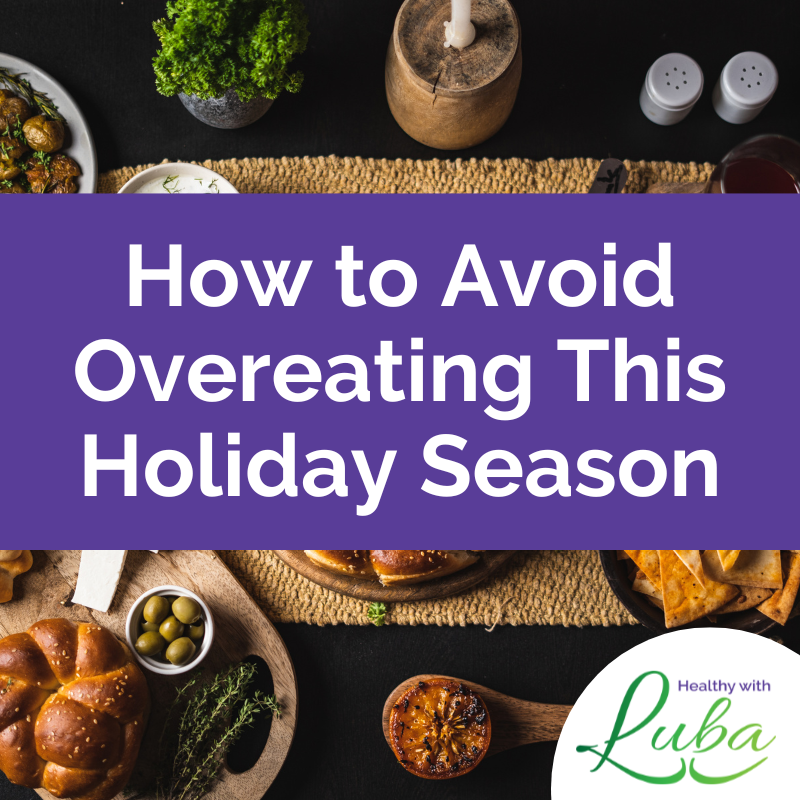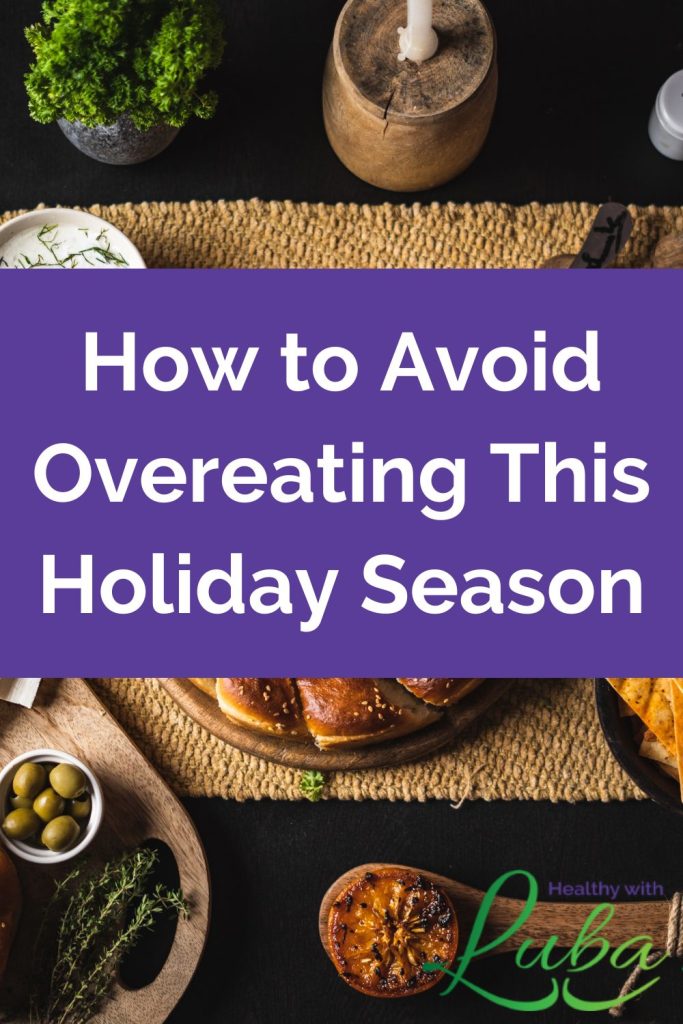
Holidays can be a time of feasting, yet if that feasting leads to discomfort at best and illness and weight gain at worst, is it really worth it?
People tend to feast for over a month during November and December then set unrealistic goals for weight loss, exercise, or health eating. This year, let’s practice some self-control and take care of our health in the process. Holidays do not need to ruin our health!
Here are a few practical tips that may help you.
- Eat breakfast before the holiday meal.
While it may be tempting to skip breakfast because you will be eating so much good food, doing so may lead you to overindulge when you do eat. Breakfast truly is a vital meal.
2. Eat slowly.
It takes a while for your body to realize it is full; if you eat quickly, it will be much easier for you to overeat. Eating slowly also helps you to chew your food well for proper digestion.
3. Begin with just one serving of a few foods.
When you see all the good food, you may want two plates, but don’t let your eyes be bigger than your stomach.
4. Do not put an excessive amount of food on your plate.
You may feel as though you need to finish all your food when all when in reality you are already full.
5. Stop eating when you feel full.
You can save leftovers for dinner or for a meal the next day.
6. Remember that there will be food to eat again tomorrow.
Thankfully, most of us are not starving. If you don’t eat all the food on the holiday, you can extend the holiday by having leftovers a few times. 🙂
7. Don’t make the holiday all about eating.
Take a walk together as a family, look at old photos, take turns sharing memories of previous Thanksgivings, or even start a new tradition that has nothing to do with food. Can you work on an enjoyable project together, sing some favorite songs, or begin working on goals for the new year?
8. Leave the table.
When you continue to sit at a table laden with food, you may want to continue to graze whether or not you are hungry. If you are company at someone’s home and cannot leave the table, at least pass the food so that it is not within your reach.
9. Eat nutrient dense foods.
If you eat foods with many calories but little nutrition, your body will not feel full and will want to continue to eat. Here are some delicious and healthy foods for your Thanksgiving meal.
10. Be mindful of how much dessert you eat.
Take the smallest piece, split a piece with a friend or spouse, or skip dessert altogether. You can also take a break before eating dessert or eat it the next day.
11. Make your holiday meal the final meal of the day.
Since you are eating breakfast, you may not need a third meal in the day, especially if your holiday meal is later. If you truly feel hungry eat, but do not eat if you already feel too full. Alternatively, you can eat a light third meal.
If you want to take good care of yourself this holiday season rather than ruin your health, here are a few products I recommend and take daily myself:
Forever Daily – this multi-vitamin fills in the nutritional gaps of your diet; unlike other multi-vitamins, it is coated with aloe to help with the absorption of nutrients
Forever Pro-B – this probiotic helps to take care of your gut health as well as your immunity with beneficial bacteria
Forever Garlic Thyme – whether or not you eat garlic on a daily basis, this product is essential for your immunity
If you would like to purchase all three of them, you can contact me here, and I will be happy to place your order for you.
Please share this article with a friend who is health conscious. Also, free free to use the graphic below to share this article on Pinterest.

Definitely need to eat smaller portions to reduce overeating. We like to play games after we clear table. This keeps us active and not grazing on whatever is there.
Beth, great work on clearing the table and playing games. I think we can all eat smaller portions. 🙂 Thank you so much for reading and taking the time to comment.